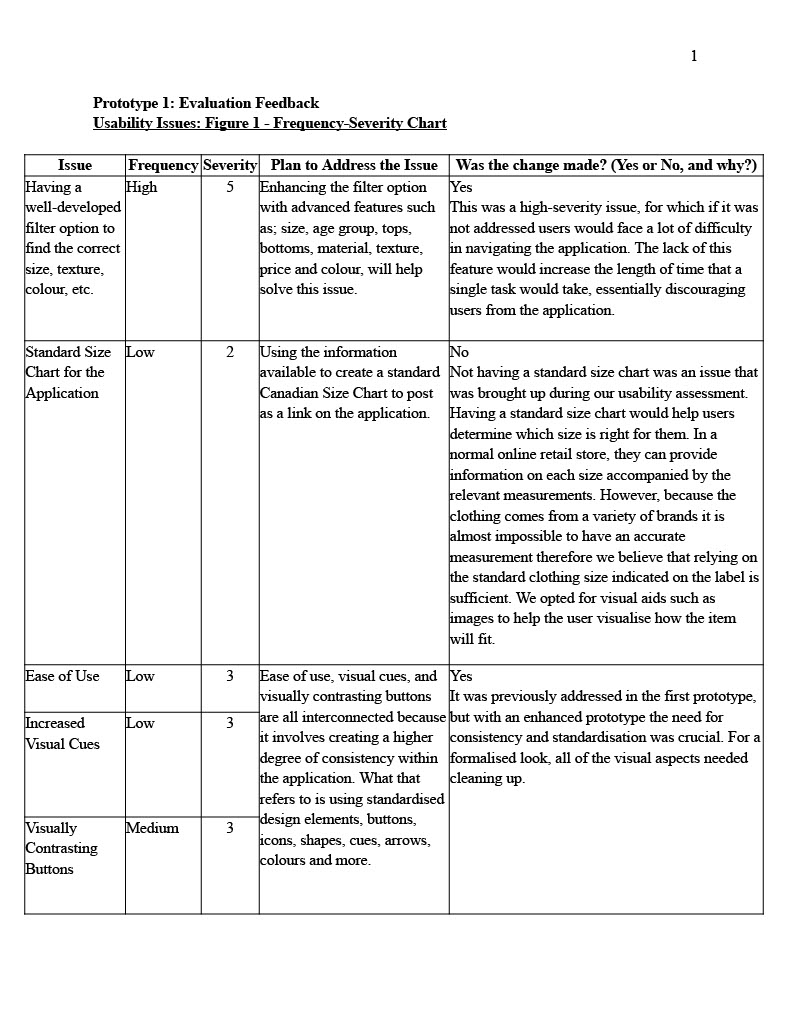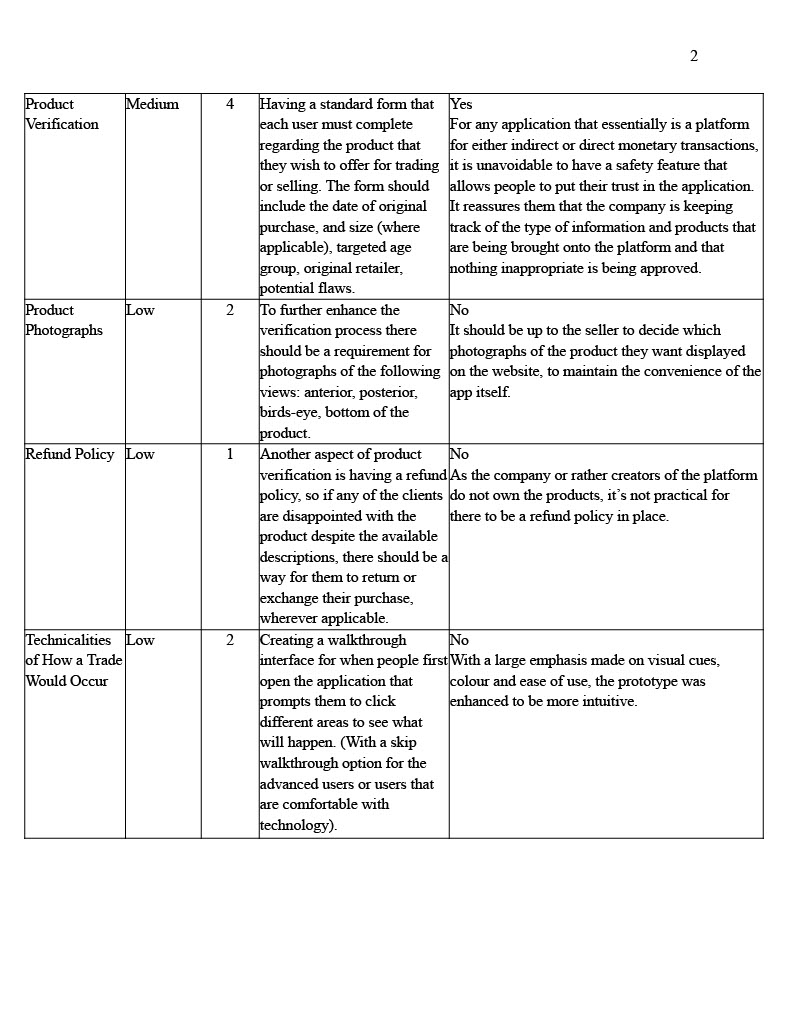HANDMEDOWN
UX/UI Design & Research
___________
Tasked with designing a digital app promoting sustainability as part of a UX project at the University of Waterloo’s Global Business & Digital Arts program, our team of five developed HandMeDown, a digital platform aimed at reducing fashion waste. Children’s clothing contributes significantly to this waste, with children outgrowing their clothes every six months on average
Designed for parents and guardians, HandMeDown facilitates the buying, selling, and trading of children’s apparel and accessories within a verified local network. The app promotes sustainability, affordability, and community-driven commerce, making it easier for families to embrace eco-friendly parenting and fashion choices.
My role in this project involved designing and developing each iteration of the prototype, as well as assisting with user research.
DESIGN & PROTOTYPE
HandMeDown went through several prototype iterations, beginning with the initial wireframe and ending with an interactive digital prototype. Changes were made as a result of the qualitative and quantitative data obtained from usability testing and user interviews. All prototypes were developed using Figma.
RESEARCH & ITERATION
Primary UX research was conducted by our group in the form of digital usability testing and user interviews.
I personally developed and conducted the usability test, which involved providing users with a set of tasks to complete on the interactive prototype. The metrics I collected from the testing included average time spent on each individual task, whether the tasks were completed or skipped, and click tracking in the form of heatmaps.
Another member of my group conducted user interviews, in which participants were provided with a set of tasks to complete, followed by a set of interview questions about their experience with the app.
Through these research methods, we were able to acquire both quantitative and qualitative data. We then analyzed this data via a frequency-severity chart in order to determine what changes should be made to the application and prototype.

